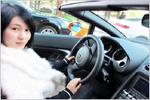Intellectuals need independent thought
Updated: 2011-08-10 07:56
By Zhu Yuan (China Daily)
|
|||||||||||

It has been said that Europe has two types of intellectuals that hold completely different views about the way European countries should be run. Those who have a dream of Utopia that they inherited from their forefathers in the 18th century and who strive for a more just society through human rights and justice and those who believe that capitalism, backed by science and technology, will bring prosperity, peace and all good things to the world.
There is a similar situation in China. We have two similar types of intellectuals, who hold opposing views on the approach to development. The first are the heirs of traditional Chinese culture, who are concerned about the future of their country and well-being of its people. They are fond of finding faults with the nation's social institutions. They tend to judge everything against a moral standard, or against an unattainable Utopia, which human beings must strive for if they do not want to lose their way on the path of development.
Opposed to them are the technocrats, who tend to blindly worship technology and laissez faire, which they regard as the panacea to all problems. They often turn up their noses at the views of their opponents, whose concern for the future of this country or worries over a single project they often dismiss as crossing a bridge before coming to it. Their reply to those who point out problems in the process of development is always: "Nothing is perfect, there is always a price to pay for development."
With China's economic reform and opening-up in the late 1970s, most intellectuals embraced ideas from the outside world, those of developed countries in particular. They had been repressed under the dominant class-struggle ideology and opening-up stimulated their enthusiasm to try new things.
That the economic progress of the past three decades is unprecedented and the size of China's economy has jumped to be the second in the world seems to have justified the argument that the ideological debate over whether China should take a socialist or capitalist road is meaningless. Deng Xiaoping once said that development was the prime principle China must stick to. Yet, the dichotomy of perception that exists among intellectuals over the approach to development is different. It has nothing to do with ideology in the old sense, rather it is about the quality of development, or whether development is sustainable.
The financial crisis and the debt crisis in Europe and the United States suggest that laissez faire leaves much to be desired. The food safety hazards that have repeatedly emerged and the numerous scandals in various institutions also point to the fact that the worries of some intellectuals are not without cause.
So the debate between these two types of intellectuals is probably healthy, but there is a third type of intellectual in this country that is deeply troubling. They are the ones who barter their independence for a mess of potage when making judgments and cater to the authorities or even a particular interest group. As a result, they often give comments that are against common sense. Say, the risk of inflation is high, some economists will conclude without any convincing evidence that there is no risk at all or the risk is under control. This is dangerous when it comes to any discourse about such serious issues.
The other two types, no matter how extreme their views may be, are sincere and say exactly what they think. There is even the possibility they may change their point of view if they are proven wrong. The third type, however, only say what they think wants to be heard in order to further their own interests. In other words, their thinking is compromised by the lure of political power or economic self-interest. As a result, they only talk on behalf of the political or the economic power they are looking to profit from.
It is not easy for intellectuals to stick to their principles in the face of the temptations of status and money. But we must demand they do so, as they are the country's social conscience, and their independence is the moral backbone of society.
The author is a senior writer with China Daily.
(China Daily 08/10/2011 page8)




